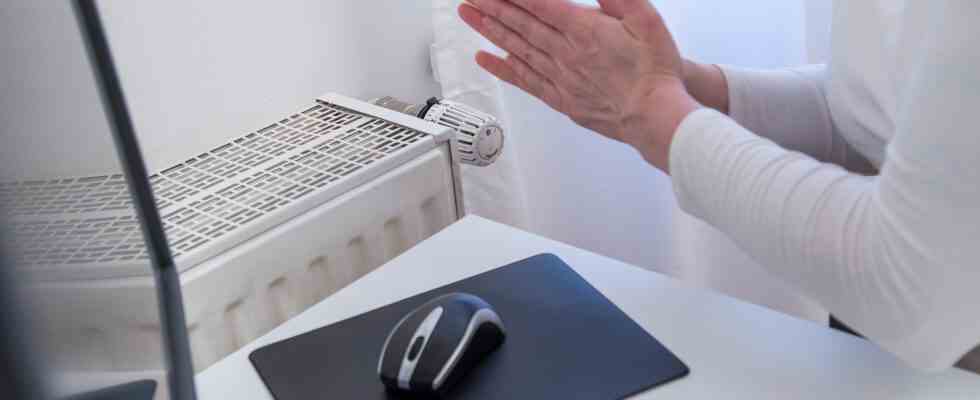Status: 21.10.2022 06:01 a.m
Because of the gas crisis, offices should stay cooler. Women in particular could feel this – because they freeze faster than men and this also puts them at a competitive disadvantage, as studies show.
By Jenny von Sperber, BR
Men and women are actually not exactly the same physiologically. In many cases, this means that women freeze faster – leaving individual differences aside. On average, men have more muscle mass than women. And the body heat is produced in the muscles. So they also warm up the muscles of the men.
Responsible for these differences between men and women are primarily their different levels of sex hormones. And they also provide physical characteristics and bodily functions that can explain why women freeze quickly. This is what the internist Georg Ertl from the Würzburg University Hospital says: “On the one hand, this could have something to do with the blood circulation in the hands and feet, and also in the ears, where we are most likely to get cold. On the other hand, these different hormone levels also lead to a different constitution. For example, more subcutaneous fatty tissue in women. On the one hand, this insulates the inside of the body from the skin. But the skin perceives the temperature of the body from the outside, so that the skin of the woman feels cooler than that of the man.”
Temperature affects cognitive performance
So there are medical reasons why women often get cold faster than men. But what does that mean for this winter, when offices and public buildings are to be heated to no more than an economical 19 degrees due to the lack of gas? Is it just a bit of unfairly distributed discomfort?
If it doesn’t work, say the authors – a man and a woman, by the way – of a study entitled: “Battle of the thermostat“. Because the cognitive performance of men and women also changes depending on the temperature. For this study, more than 500 test persons had to solve mentally demanding tasks at different temperatures between 16 and 33 degrees: math tasks and also language tasks, which were then evaluated. You could Roughly summarize the result as follows: Women can think better when it’s warm, so the energy crisis is a competitive disadvantage for women.
Same pattern in animals
It is worth taking a look at the animal kingdom to find out why humans have developed in the course of evolution in such a way that the performance of women improves when temperatures rise and that of men worse. The zoologist Eran Levin of Tel Aviv University has noted: In all the cold-blooded animals he examined, the females often choose warmer places than the males.
For example, it can be observed in male kangaroos, baboon and lemurs that they look for shadier places for their activities than females. “And for many migratory birds, the males travel shorter distances and stay at higher altitudes during the winter. Or, when bats forage, the males often fly to higher altitudes while the females stay at lower altitudes.”
reproduction as a reason
Accordingly, such a difference between the sexes has not only developed in humans, but also in bats or birds. Levin interprets his results as follows: “We think that females prefer higher temperatures because it has important physiological implications for functions that are specifically female and in which heat sensitivity plays a crucial role. The incubation of eggs, for example, or the fetus. Or the thermoregulation of newborns.”
Thick socks and a scarf help
The question remains what women – who probably don’t have to look after a baby in the office – should do when it gets uncomfortably cold at work. After all, it would be a shame not to have to do without female cognitive bests.
Physician Ertl advises warming individual parts of the body in a targeted manner: “For example, we know that when the extremities are warm, the body itself no longer needs to be that warm.” So maybe the wool socks are enough for best performances at work this winter. Or a warm hat at the desk.
Women freeze faster – an explanatory piece
Jenny von Sperber, BR, 10/20/2022 1:35 p.m

